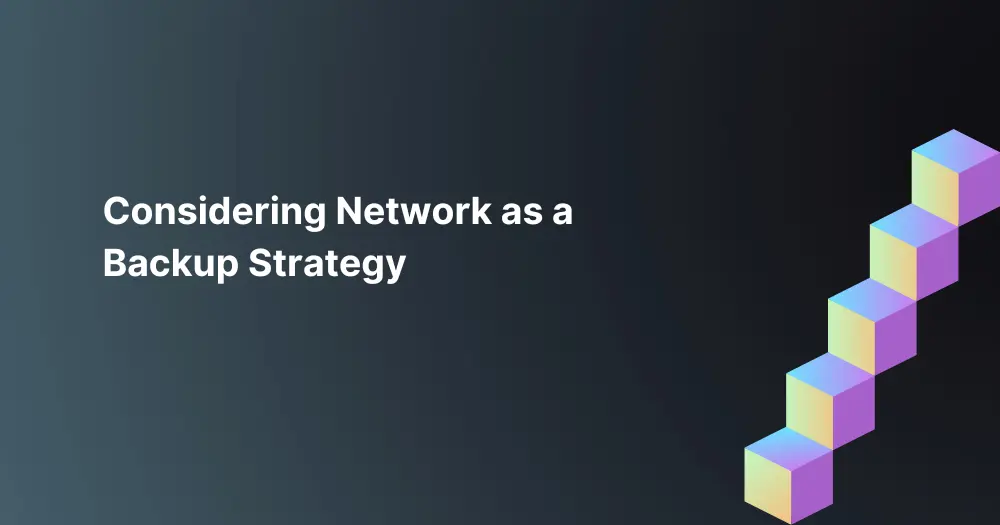
Data backup is not optional. For many businesses, data is their most valuable asset. Disaster can strike from any angle, and the key to recovery is a robust backup strategy. Natural disasters are a common worry that prompts companies to invest in disaster recovery strategies. More recently, cyber attacks have taken center stage as an essential reason to invest in robust backup. Interestingly, the top reasons that companies lose data aren’t related to anything as headline-grabbing. Hardware failure and human error are the causes of the most disruption to businesses.
When these troubles arise, the impact isn’t isolated to your data files. It is not uncommon for an organization to forget about the network as part of the strategy in their backup plan. It’s important to remember in this age of cloud-based storage solutions and cloud-based applications that we are sharing networks to transport our data from one point to another.
As you consider your network as part of your business continuity and disaster recovery plan, here are some key things to remember:
Quality of service (QoS) is an important aspect in a shared network environment. QoS helps to prioritize traffic flow, which is vital when moving vast amounts of data on a daily basis. In many cases, day-to-day activities such as voice and video get priority, which QoS can control.
There are many parts involved in moving data from point-to-point. If the network goes down, operations can grind to a halt. Eliminating any single weak spot is essential to preventing your local area network (LAN) from being taken offline. You need to verify that your network is resilient from beginning to end. While searching for these potentially weak areas, consider automated tools that can prevent failover.
Data security conversations should happen in every department, not just in IT, and a hybrid cloud approach can help you gain better control over your data center operations. Inadvertent missteps with company-owned devices and practices involving bring your own device (BYOD) can lead to compromised data. You also have to devise policies that protect your cloud and wide area network (WAN).
As you get more involved in your backup strategy, you’ll realize that backups can take a lot of throughputs. Should any link become congested, users on your network will see it affect their applications. One way around this common problem is to create a separate network for your backup strategy.
Reliable networks are more critical than ever. Organizations depend on network connectivity to access cloud resources, corporate files, and collaboration with peers. For many companies, the network is how their business operates. A well-run network increases your efficiency and productivity.
At BlackPoint IT Services, we have over four decades of experience offering reliable services for our clients. We’re committed to doing our part to ensure the network is always up and running smoothly for our clients. To learn more about how you improve your network performance and develop a thoughtful backup strategy, sign-up for a free assessment.